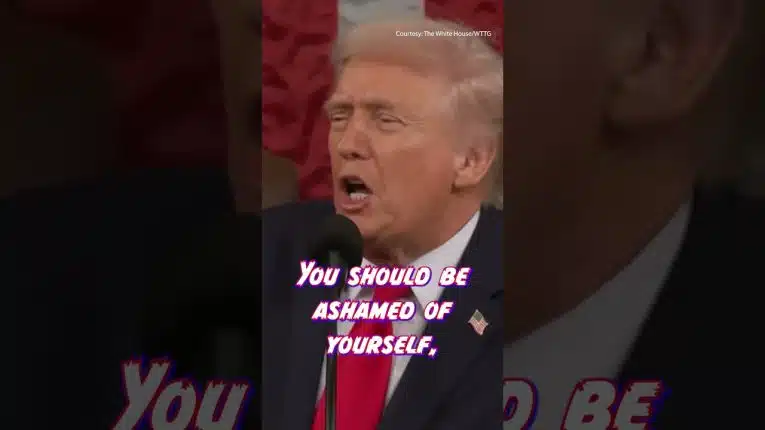“Although there is evidence of potential violations of the statutes regarding the handling of classified information, our judgment is that no reasonable prosecutor would bring such a case.”
That was FBI Director James Comey explaining to the nation why the FBI would not be recommending that Hillary Clinton be charged with any crime for storing and disseminating classified information from her private email server — even though, as Comey suggested, “there is evidence that they were extremely careless in their handling of very sensitive, highly classified information.”
And, even though doing so is against the law, noting that under the law, it is “a felony to mishandle classified information either intentionally or in a grossly negligent way.” Here, he is citing 18 U.S.C. 793(f), which states in part “Whoever, being entrusted with or having lawful possession or control of any document, writing, code book, signal book, sketch, photograph, photographic negative, blueprint, plan, map, model, instrument, appliance, note, or information, relating to the national defense… through gross negligence permits the same to be removed from its proper place of custody or delivered to anyone in violation of his trust, or to be lost, stolen, abstracted, or destroyed… Shall be fined under this title or imprisoned not more than ten years, or both.”
It has all the outward appearances of corruption. Crimes were committed, the FBI admits, but they will not be prosecuted.
Comey hinted that Clinton might have been charged, had there been intent: “Prosecutors necessarily weigh a number of factors before bringing charges. There are obvious considerations, like the strength of the evidence, especially regarding intent,” and “In looking back at our investigations into mishandling or removal of classified information, we cannot find a case that would support bringing criminal charges on these facts. All the cases prosecuted involved some combination of: clearly intentional and willful mishandling of classified information; or vast quantities of materials exposed in such a way as to support an inference of intentional misconduct; or indications of disloyalty to the United States; or efforts to obstruct justice. We do not see those things here.”
Of course, one need not look far to find cases where intent to disseminate classified information was quite irrelevant. Take James J. Smith, who was charged in 2002 with gross negligence under 18 U.S.C. 793(f) for mishandling classified information. He eventually pled down to a separate charge of lying to the FBI about the affair he had with Chinese double agent Katrina Leung.
If only Clinton had lied about it to the FBI, perhaps she might have been charged for the actual crime of disseminating classified information. But why should that matter? If she was merely negligent, as Comey noted, that’s a crime, too.
Intent was simply an excuse for Comey not to act; the real reason is much worse. For, this outcome is hardly surprising when viewed through the prism of prosecutorial discretion.
All cases become political when there is no consistent application of the law. Prosecutions of this or that classes of crime become merely administration policies under the pretext of focusing resources. We elect a president, who appoints an attorney general, and together they determine which laws will be enforced.
In that universe, then, you can have an Obama administration that says it is not prosecuting illegal immigration cases or a hypothetical Trump administration that says it is prosecuting all of them.
Since there is no law that says the law must be executed in every instance — forget the Constitution, find a prosecutor or court ruling that says otherwise — nor any standards for stating when discretion applies and when it would not other than vague ethical considerations, the likelihood of political prosecutions and non-prosecutions approaches 100 percent.
We have made justice a political question with which the executive branch has discretion.
I personally never thought Clinton would be prosecuted even if laws were broken for precisely this reason. Never mind the fact that she is the presumptive presidential nominee for the Democrats and that it would be practically unthinkable she would be charged on the eve of her nomination. In the meantime, somebody like David Petraeus can be prosecuted seemingly to destroy his career.
Perhaps the public trust commands that the law ought to take precedence over politics. The problem appears to be that there is no law that says so.
This is nothing new. The Supreme Court has been fairly emphatic, for example in Oyler v. Boles (1962), that selective enforcement does not even run afoul of equal protection under the 14th Amendment. It’s been upheld over and over again, for example, in Wayte v. United States (1985).
Seems to fly in the face of the text of equal protection or even the supremacy clause in Article VI, but since when has the text of the law really mattered all that much?
The only check left may be the American people themselves. How can anybody now trust that Hillary Clinton “shall take care that the laws be faithfully executed,” as commanded by the president’s oath of office? What sort of administration of justice shall she usher in?
Presumably, you could have somebody run for local sheriff or the president on an “anything goes” platform. So long as that candidate can win a majority in the election, enforcing the law appears to be entirely optional. Even the decision to enforce the law becomes a political question.
Which, is no standard whatsoever. What we have here is confirmation that the rule of law — that neither government officials nor the governed may break the law — really means nothing. Selective enforcement — that is, the rule of man — has been and probably always will be the true order we live under. Eventually, it was going to be a high official who got off the hook.
While such an outcome is undoubtedly disappointing to many, it should not be surprising. So long as we accept prosecutorial discretion as part of our political and legal foundation as a nation, this will likely continue to happen. Members of Congress who want to rail against the Justice Department’s use of discretion in this case may well want to consider that they have a very clear remedy — that is, to write a law that says otherwise.
Robert Romano is the senior editor of Americans for Limited Government.







